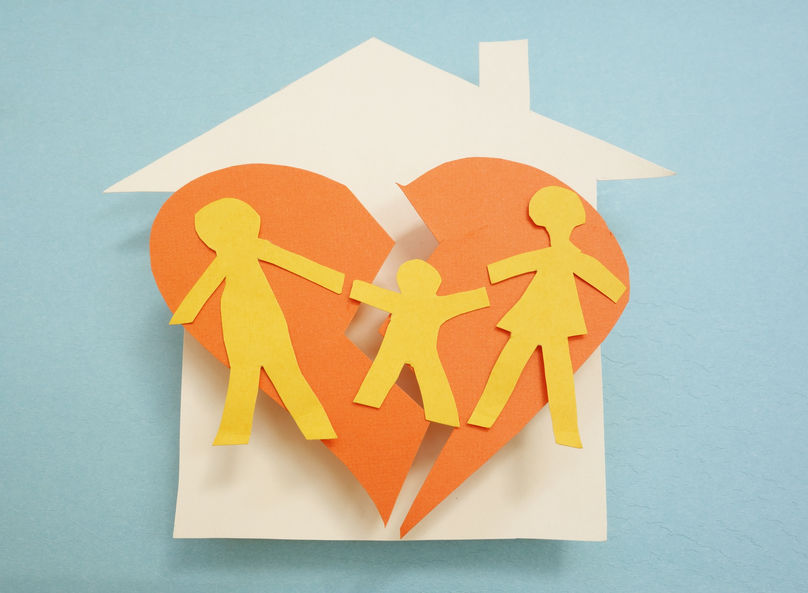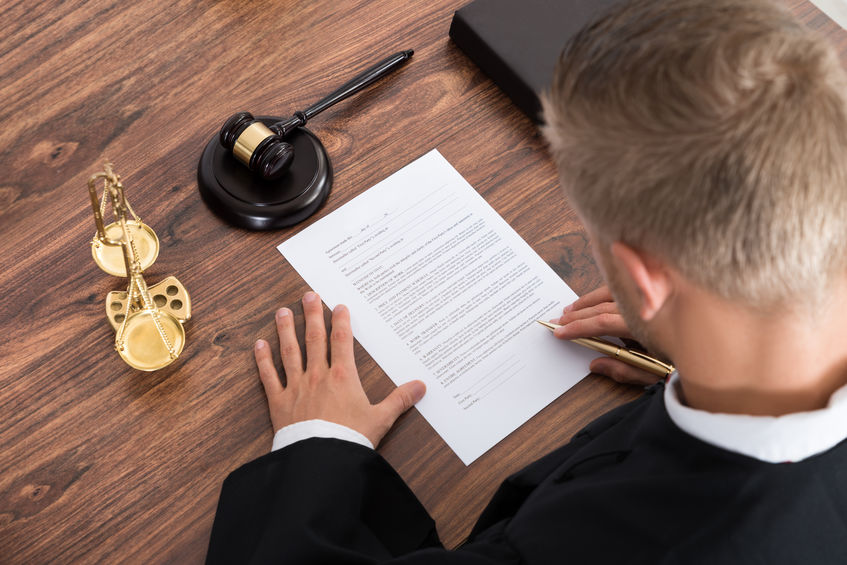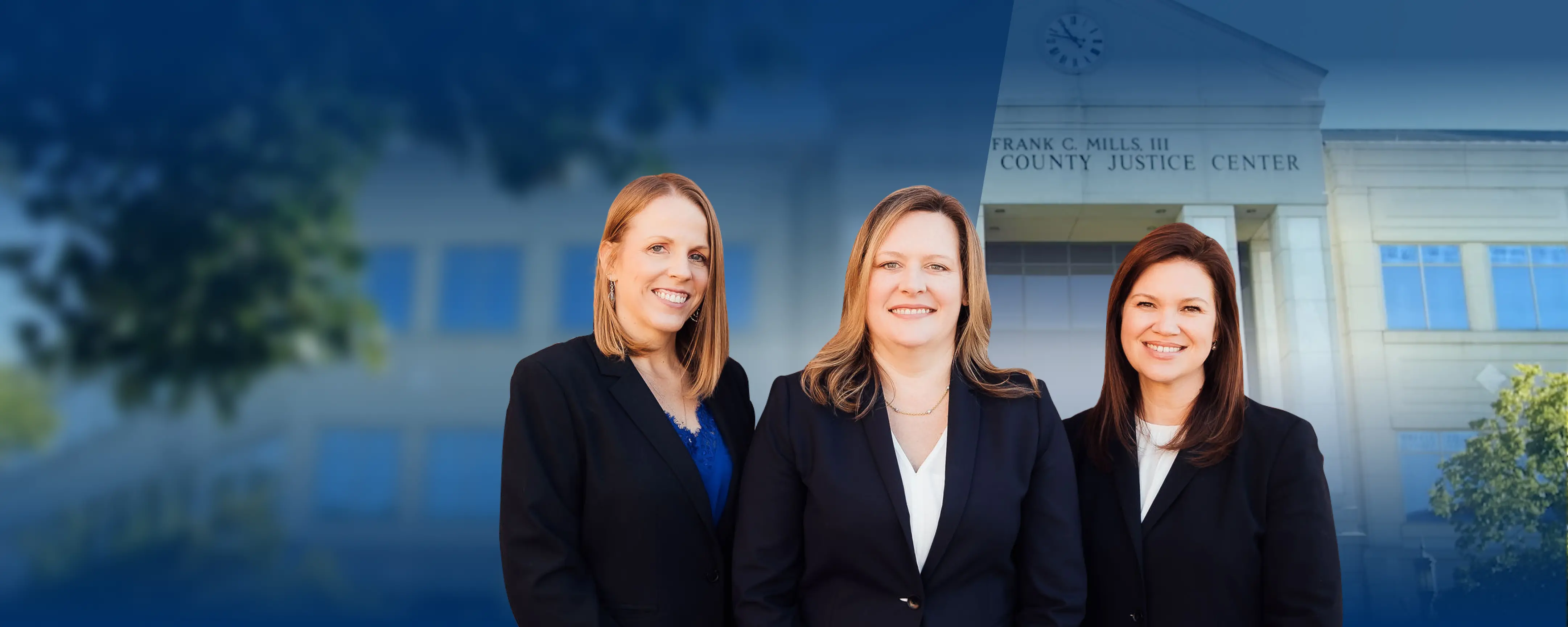
Nobody’s experience of divorce is the same. For some, the process is difficult and painful. For others, divorce is liberating and opens the door to a happier life.
However you feel about your particular divorce, however, the process doesn’t have to be as challenging as it often is. This guide is intended to give you an overview of the process and your options in the state of Georgia, as well as tips for preparing for what happens next.

Common Questions Divorcing Couples Have to Answer
Divorce is the process of disentangling your life from your spouse’s as much as possible. Sometimes it’s not possible to disentangle completely, especially with children involved.
This can be a complex process. Here’s an overview of the challenging questions you and your spouse may have to contend with during the course of the divorce.
How Will Your Property Be Divided?
Some property clearly belongs to one spouse or another, but this question is often not as cut and dry as it appears. It can become contentious.
Georgia is an “equitable distribution state.” That means that if your case goes before a judge (which it may not – more on that below), it will be divided based on what is fair, regardless of who bought the property. “Fair” doesn’t have to mean a 50/50 division.
One determining factor of how property will be divided involves what is considered marital property, and what is separate property.
Marital property is anything the couple acquired while married – which can include wages, homes, land, businesses, pensions, vehicles, and bank accounts. These will generally be divided between two people in what the judge considers a fair and equitable way.
Separate property usually involves anything either spouse owned before getting married, as well as things given solely to one spouse, such as an inheritance or gift. If your case goes before a court, it’s likely the judge will grant these things to the spouse who owned the item prior to marriage, or to whom it was given.

Who Will Pay the Couple’s Debt?
Because Georgia is an “equitable distribution” state, your debt will also be divided among you in a way the judge considers fair and equitable, but which may not be straight down the middle.
Generally, the debts you came into the marriage with belong to you alone after the marriage ends —and the same is true for your spouse’s pre-existing debt.
But the picture gets complicated when it comes to debt either spouse incurred after getting married, even if one spouse took out the debt in their name alone.
In those cases, the judge will take a number of issues into account when deciding how to divide the debt, including each spouse’s income and ability to pay; what the debt was for; and how each of you benefited from it.

Is Anyone Entitled to Alimony?
Alimony is payment given from one spouse to another after divorce.
In Georgia, married couples are considered financially responsible for each other and that can continue after divorce. But alimony isn’t a given in the state of Georgia. The court may decide to award it only if it’s determined to be necessary.
Alimony may either be temporary or permanent. It can be paid in a lump sum or in regular payments. Temporary alimony is a much more common scenario.
One common scenario where alimony may be granted involves cases of longstanding marriage, when one spouse was financially dependent on the other, usually keeping house and raising kids while the other spouse worked.
The stay-at-home spouse may have to become financially self-sufficient after the divorce, which may also involve going back to school or undergoing professional training. In these cases, temporary alimony is granted to help the spouse get back on their feet.
In some cases, one spouse is not able to work at all, usually because of age or a health condition. In these cases, alimony may be granted on a more long-term or even permanent basis.
In the large majority of cases, alimony payments generally end when the receiving spouse marries again or becomes financially self-supporting.

Who Gets Custody of the Children?
Georgia courts are very concerned with children’s welfare, and neither parent is automatically awarded custody.
Factors that may determine who gets custody include the children’s age, their relationship with both parents, and each parent’s financial circumstances and ability to provide care. Children over 14 are allowed to choose which parent to live with, provided that parent is able to provide care, and it is in the child’s best interests to live with that parent.
Custody can be a complicated issue. The questions involved include where the child will live, how often and under what circumstances the non-custodial spouse will see the child, and which parent gets to make final caregiving decisions.
The court may also decide to award joint custody to both parents. This gives both parents the right to make caregiving decisions, and may mean the child has to split their time between two households.

What About Child Support?
Under Georgia law, parents are required to support their children until they reach 18 years of age or meet other milestones, such as marrying or joining the military, but if a child turns 18 while still enrolled in high school, child support can be extended until they graduate from high school, but not beyond 20 years of age.
The parent who doesn’t get custody may be required to pay child support. The amount is generally calculated based on each parent’s income and ability to pay.

No-Fault vs. At-Fault Divorce
In Georgia, as in other states, you don’t need to state a reason to get divorced. A no-fault divorce basically means you and your spouse have “irreconcilable differences,” which you don’t have to define
However, there are twelve other reasons to seek a divorce in Georgia. Some of these include adultery and abuse, conviction or imprisonment, drug abuse issues, abandonment, and mental illness.
The large majority of divorces in Georgia are no-fault. With a no-fault divorce, you don’t have to go to court if you do not have minor children, and you and your spouse can agree to the terms of the divorce; the process is often easier and less expensive; and you don’t have to prove any wrongdoing on the part of your spouse (or defend yourself against your spouse’s charges).
If one spouse wants to seek an at-fault divorce, they will have to prove the circumstances in court. This makes the process more expensive and drawn-out for both spouses, and results in your private affairs being made public, which can be difficult for some.
However, at-fault divorce can have a big effect on how certain questions are answered.
For example, child custody is unlikely to be awarded to a parent with substance abuse issues, and an abusive or cheating spouse is less likely to be awarded alimony even if they have a financial need and the other spouse can pay. For these reasons, some people seeking a divorce choose this route.

Types of Divorce in Georgia
There are a number of ways you can get divorced in Georgia.
Here are a few of the most common questions we get asked about the various options.
What is an Uncontested Divorce?
This is the fastest and least expensive way to get divorced.
In an uncontested divorce, you and your spouse agree among yourselves about all issues; there’s no need to hash anything out.
You bring in an attorney to draw up a settlement agreement that sets your terms on paper. The agreement gets filed with a court and approved by a judge; and you’re issued a divorce decree to sign.

What is Mediation?
Even the most amicable divorcing couples sometimes have a few disagreements to iron out. Mediation is a very common way to get divorced in Georgia, perhaps the most common way, as all divorcing couples (other than uncontested divorces) are required to try mediation before going to court.
This process gives divorcing couples the chance to work out their differences in a way they can both agree on. During mediation, an independent, trained mediator will work with both parties to hammer out an agreement. Having a lawyer present isn’t mandatory but we strongly recommend it.
The mediation process has a lot of things to commend it. It’s cheaper and faster than going to trial, and your private business stays private.
Perhaps the greatest benefit, however, is that during a mediation, you and your spouse both agree on the final settlement. You will both likely have to compromise, but the ultimate decisions rest with you and your spouse.
This is important, because the terms of your divorce can have a profound effect on your life afterward.

What if My Divorce Goes to Trial?
The mediation process is designed to help divorcing couples – even those with contentious disagreements – come to a settlement they can both live with. However, sometimes divorcing couples can’t agree. When that happens, the case goes to court.
Going to court is typically more expensive and time-consuming than mediation. The process may take months to prepare for, and the trial itself may last hours or days. You’ll definitely need a lawyer.
And you’ll have to abide by the judge’s decisions, even if you don’t like them.
Divorce trials aren’t always contentious, but they can be with intense emotions and accusations on both sides. Both parties’ lawyers have the right to investigate the opposing spouse’s claims against them, conduct interviews with witnesses, and subpoena documents and other evidence.
However, going to court is unavoidable for some couples.
In cases where two people have spent a long time trying to agree on how to disentangle their lives, a judge’s decision can put a final end to this difficult process—which can be a relief for both parties. And in cases of an at-fault divorce, the process is necessary to prove wrongdoing on the part of a spouse.
For these reasons, divorce court may be necessary for some. A divorce lawyer with extensive courtroom experience can defend your rights in court and make sure you get the best settlement possible.

What is Collaborative Divorce?
This is a relatively new option in the state of Georgia. Like with mediation, the goal is to come to a mutual agreement without going to court.
But the room is a bit more crowded than it is with mediation. Both parties’ attorneys, financial advisors, real estate experts, therapists, child behaviorists, and others may participate in the process.
Collaborative divorce is a good option for couples with a lot of complex entangled property or those with contentious custody issues, the kind of issues that usually require a trial to sort out.
It’s also particularly helpful when there is a large power imbalance between parties, as the extra support helps the more disadvantaged partner feel safer in expressing their needs and getting them met.

What is Arbitration?
Arbitration is another way to stay out of court. It’s for couples who really can’t agree about major issues surrounding their divorce, but who want to avoid a trial.
As with court, during an arbitration, divorcing spouses don’t have to agree. Your attorney and your spouse’s attorney will each present arguments to a neutral third party. That person will make a unilateral decision regarding the terms of your divorce.
Like with a trial, the arbitrator’s decision is binding. You have to comply with it, even if you don’t agree. Unlike a trial, however, your private affairs are kept private, arbitrations are not a matter of public record. The process also takes less time than going to trial, and is often less expensive.
Work with the Best Divorce Lawyer in Cherokee County
If you’re in the process of getting divorced, we can help.
Divorce can be challenging, and the decisions you make now can have a huge effect on the rest of your life post-divorce. Whether the process ends in mediation or heads to trial or arbitration, we can help you get what you’re entitled to.
Call (770) 479-1500 to schedule your confidential consultation. Evening and weekend appointments are available.







